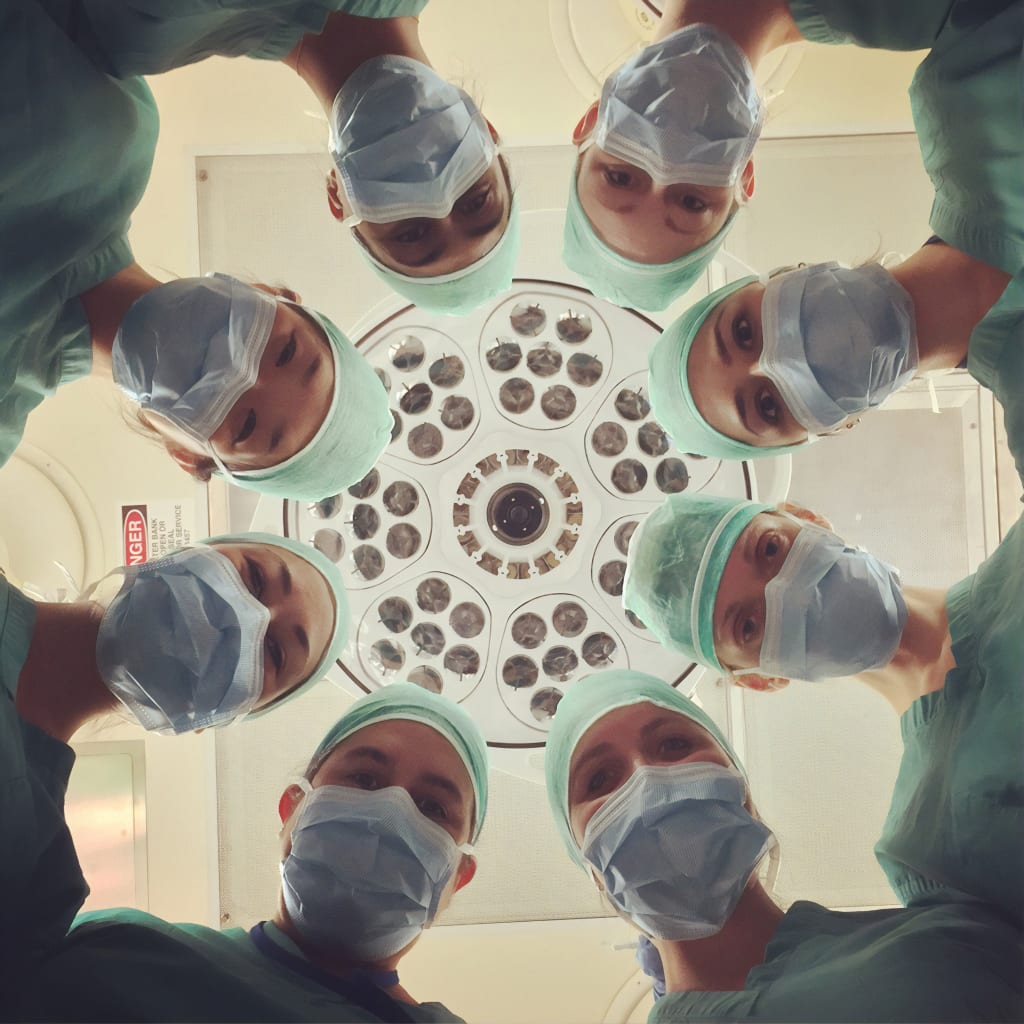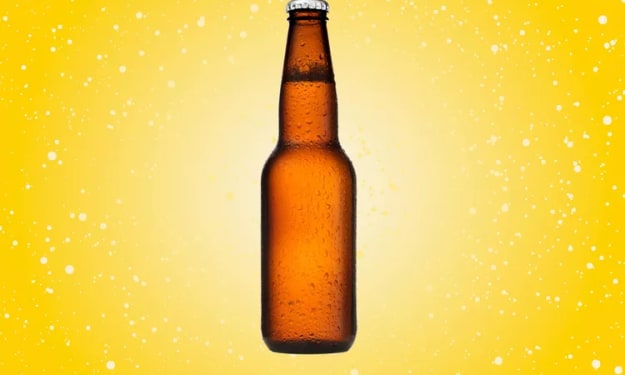What I Learned: 7 Days In A Hospital- Part 1
How a spinning class nearly killed me.

What will you remember 2019 by?
To me, it was a year of learning. It was a roller coaster ride, without seat belts. First half of the year was defined by highs, extensive travels and new experiences. By mid-year, I was on top or so I thought. My life build up to the highest point of escalation that it was impossible to slow down. The brakes gave away mid-flight and I fell. I started fading away, both mentally and physically: if continued, I was sure I would not survive.
On January 13th, I booked a ‘Ryde’ spinning class. The website promised it to be an unforgettable experience. I was about to undergo a full-body workout done on a unique bike, in total darkness to the beat and bass of energizing music. I was very excited.
The class welcomed the new members with a loud cheer while a lady-instructor gave a heart compelling speech- I was incredibly stimulated. Seconds later, the class put the headphones on, the lights went out, the music kicked in and the ride began.
Within the next 15 minutes, I was out of my breath: legs throbbed with excruciating pain, my body was dripping wet, and I felt like fainting. I had to slow down. The moment I leaned back to sit down, I heard a criticizing voice in my headphones :
“Second row! I can see you. Don’t stop now. You have come so far; you are stronger than this. Keep riding! You can do this, common!” — the lady-instructor declaimed.
How could I let the instructor down? How could I quit now when I am so close? Suddenly I wasn’t in the spin class anymore. I time-travelled back to the second half of the year 2019. I remember all the bad and ugly. Those who did me wrong and made me suffer. I got angry, livid, vengeful. I wished for a second chance where I would not have missed my sister’s wedding, family birthdays and where I would not ruin Christmas holidays. I was focused, like never before. I was riding towards something in the distance — towards new me: better, stronger, happier. Adrenaline kicked in and I pulled my but up high and peddled. I peddled until I dropped.
I dropped — literally. I could not feel my legs, hold balance and with the help of strangers, I was put into a taxi and left for home. Hours later, I was still unable to walk. My spirit was still elevated and I felt proud of myself. While resting my legs under pillows on the couch I went to such lengths that I booked another class in two days time — I assumed, I had delayed onset muscle soreness (DOMS) and with a few home remedies such as cold compressions and warm bath my pain will go away. I was ready to challenge myself once again, little did I know, that a far bigger challenge was awaiting me.
In 48 hours my pain worsened: my upper legs became rigorously swollen, my body temperature raised, and my urine turned dark brown. I called 111, where I was advised to go immediately to the hospital. In no time, my partner drove me to the Emergency Department, where I received a diagnosis:
I was experiencing rhabdomyolysis — a rare but life-threatening condition. For short “Rhabdo”, which results in muscle tissue breakdown, releasing toxins into the blood, which can seriously damage the kidneys, leading to kidney failure. In some cases, the condition can be fatal. The enzyme released by damaged muscle is called creatine kinase, typical levels are in the region of 22 to 198 U/L (units per liter). Levels can be elevated due to certain nerve disorders (500 U/L), or grossly elevated up to 3,500 U/L indicative of severe inflammatory myopathies. My blood tests showed over 200,000 U/L! The higher the levels, the more likely it is that kidney damage or even failure could occur at any time. Doctor’s advised I needed fluids to reduce strain in the kidney, until levels decrease. From that point, it was clear that I will be staying in the hospital for some time. And so the challenge began.
Day 1 — The Night Shift
First night in the hospital was physically the hardest. I arrived in the Emergency Department just before midnight. I took over 3 hours to be seen by a doctor and to receive the above diagnosis.
People of all ages were seated in the waiting area, desperate to be seen by a doctor. Ultimately to be saved. I knew I was in for a very unsettling night. Emotions heightened, and the room lacked the one thing that is needed the most from patients — patience.
Just before the clock stroke 4 AM, I was put on a mobile bed and given my treatment. They parked my bed in between the assessment cubicles and waiting area as there were no rooms available upstairs in the ward. I did not sleep that night- I doubt anybody slept in Accident & Emergency department that night.
There’s a monitor that’s always beeping. There’s a mix of sounds including people swearing, moaning, crying. There’s silence. There’s a space, where that sound changes from a mix to individual sounds of people treated in rooms. A nurse or doctor is asking a patient questions. And there I am, lying in bed, looking at the closed curtain and wondering if I am next.
People I have met while in the waiting area are slowly one by one disappearing behind the blue curtain and I am wondering “What will happen to them? Will they survive the night?”…
Around 6 AM, I realise that I have been up all night. I should have been asleep by now. My body starts to shut down, and I experience shivers. Just then I realise that I haven’t reached out to my partner nor my family. My phone ran out of battery, and I have no charger in my purse. No one is ever truly prepared for the emergency. A doctor comes to check up on me and apologizes for having no available beds in the ward upstairs. He offers his phone to use to call my partner. I could not be more grateful.
Later I meet a nurse, let’s call her Diana, who fled from her abusive husband with her child and moved to the United Kingdom. The nurse informed me that they would put me on catheter. My first reaction was “No way!”.
I was scared, exhausted, frustrated and a little bit humiliated. Catheter reminded me of my late grandfather. Isn’t that for truly sick people? Am I that unwell? I needed fresh air and cigarette. Ultimately I needed time to digest.
Noone wished to let me out of their sight; just then, Diana offered to accompany me. It was her, who realised that all I needed was compassion to go easy. Because of her, the whole experience that morning was less painful and degrading.
The staff I met that first night are warriors. They are thick-skinned and compassionate at the same time. They made my night more comfortable, bearing. With a deep sense of gratitude, just before 10 AM, I was sent upstairs to the Acute Admissions Unit.
Day 2 — The Patients
The Acute Admission Unit provides treatment to the majority of patients requiring emergency treatment. It gives care for all levels of sickness from walk-in to high-dependency.
There were five female patients in my room. Even though the room was relatively crowded, especially during family visitations, I felt like I had a considerable amount of space. I was unconsciously comparing the ward to my last night’s nightmare. I was looking to a good night’s rest, but my body was still unable to calm down. I have been through a lot in the past 24 hours. The doctors gave me additional treatment: fluids to help my body flush out the toxins, and strong painkillers to ease the muscle pain. I laid back and closed my eyes.
I started thinking about hospitals. I find hospitals fascinating because of the harmony and discord between the stories of nurses, patients and doctors. Between the halls of these institutions runs a complicated relationship between power, suffering and healing. By definition, the hospitals are sites of major life events. During my short stay, I have passed so many different faces, with intricate stories and unknown fates.
I remember seeing an elderly couple in the visitors’ room. The lady was in a wheelchair, the husband sitting next to her. For the half-hour that I watched, they did not exchange a word, they just held hands and looked at each other — a few times the man patted his wife’s face. The feeling of love was so deep that I felt I was sharing in their communion and was shaken afterwards by their pain, their passion, something sad and also joyous — the complexity and fullness of human relationship.
Earlier, I overheard a conversation between an older woman and her daughter. Her daughter plead her ill mother to withdraw the life-long savings, as she needed to close the deal on the house, according to her husband, it could not wait anymore. The older woman reassured her daughter and promised to contact the bank later in the afternoon. Soon after the daughter left, the woman asked for a cup of tea. Her hands with frailty and caution, shook as she reached for the hot tea. Her hands ashen where the fading sunlight caught them, not ghostly like a white person, just subdued and greyish. I realized how vulnerable the woman was and how much of a toll the sickness had taken . She sipped tea and called a nurse. She had to make a call to a bank; after all, she made a promise to her daughter.
Nurse intercepted my daydreaming and informed me that they would move me to a High Observation Unit (HOBS). I looked around the room and searched for ladies I never got to meet: a professional carer, who while caring for others, lost her own health; a mother of three waiting for an appendicitis surgery; and the mystery patient. an older woman who did not speak a single word.
It was past 8 PM when they moved me to my new ward. The sickness moved from door to door like a salesman and just as unwanted it washed from the east wing to the west. Alike a tsunami of illness that picked off both strong and weak in equal number. There was no greater leveller than this bug, indifferent to wealth or pleading. I slept that night, and I dreamed: I had horrible nightmares.
Day 3- The Body
The next day I jumped into the hospital routine: breakfast at 8 AM, blood tests at 9 AM, consultations with doctor at 10 AM, lunch at noon and then siesta. In the afternoon, I usually went downstairs for a cigarette. It was hard for me to move as my legs were still severely swollen, and I was unable to lift them up. I moved very cautiously, re-thinking every step fearing of putting to much weight on my legs. Usually, I managed to go downstairs without anyone’s help; sometimes though, nurses accompanied me.
I dreaded going downstairs as the smoking area was just outside of the A & E department, and I felt uncomfortable there. On my way down I met a man in his 80s, he was on bed, being moved by hospital staff. He was pale and needlelike, his eyes watered, and he reached out to me with both his hands.
“ Please, please help me stand up…Please, please, why don’t you help me stand up? Please, I am begging you.. “ — he kept repeating.
We were mere seconds in the elevator together, but to me, it felt like hours. I felt helpless, miserable and hopeless.
Outside, while smoking a second cigarette, I was thinking about the elder man I saw earlier, tied to the hospital bed. It seemed to me that in the bed lies everyone’s future unless they are lucky enough to pass in their home. Today it was an older man; all of his useful years; he’s happy and healthy years are now in his past. His eyes once sparkled after a long day outside on his farm. His farm used to produce the best lamb meat and delicious cheese to nearby family-owned restaurants. In the evenings he used to work as carpenter. Often, he walked for miles looking for the perfect tree to cut and use for his creations: tables, chairs, clocks. Both his arms and legs were not so long ago, his most valuable tools. His feet have known the woods of Wales. This person is still there, tethered to a heart that insists on beating despite his chances of recovery being non existent.
Just before 6 PM, the staff brings out the dinner: jacket potato and tuna pate. A peculiar combination, but I don’t complain. Just as I pick up my cutlery a loud alarm rings, the nurse, doctors, staff drops everything immediately and altogether they disappear into the area where I was before: Acute Medical Assessment Unit.
In 20 minutes, nurses come back, bringing three older males to our ward. Nurses bring seats to the men, turn on the television and bring out medications. I am listening, trying to understand what has just happened. They keep apologizing to new patients in our ward. They are deeply sorry that they had to witness something tragic and promise that the medications they gave them will calm them down in no time.
My head is on fire: what has happened? Can anybody tell me? But I am too scared to ask. A young nurse, Charlotte, breaks down in tears. The other, older nurse, Rachel, hugs her.
“I can’t believe this just happened. There were no signs of risk. The poor man was in his early 40s. And his family, children were there; they saw everything! Oh my god, so tragic…” — Charlotte whispers.
I did not eat my dinner that late afternoon. I cried instead. Later the nurses told me details: man in his early 40s came in the morning to the unit with severe chest pain. His vitals were excellent, and there was no sign of complications. Somehow, he died anyway. I did not ask more questions. The poor man was in the unit where patients are supposed to be “out of immediate danger”. He was supposed to be okay. I was broken, and I thought:
“I am put in High Observation Unit. Does that mean that my condition is really that serious? Am I to be next?”
I started panicking. I went downstairs for a smoke and called my partner and told him what just happened. He wished to come and see me, but I was persistent not to meet up inside the ward as It was too gloomy for me to be there.
It was getting late, past 10 PM. As I entered the HOBS, I received a text message from my partner saying that It is perhaps too late to come by and that we would not have enough quality time to spend that evening.
Though he was right, and I was not in the right state of mind — I reacted inappropriately, I was overwhelmed, I was livid! I perceived his message as an “ I don’t care about you “ announcement. My eyes watered, my temperature rocketed. I got myself into bed and looked around: my neighbours were asleep; nurses were seated in the corner, silent. The presence of death still lingered in the ward. I remembered my best friend, Milica. She is a doctor. Right now she is working in an oncology department in Serbia. I asked her if the job of letting go of people gets any more comfortable with time. Her answer was:
“That is the ultimate lie. I can tell you — it never gets easier.”
I adore her honesty.
I could not stop thinking about the man who passed away hours ago. It was someone alive and now is gone. Someone who loved and was loved. Someone’s friend and family member. The emotional impact was tough on all of us. I broke in tears, the nurse came by and asked if she could help anyhow. I asked for a powerful painkiller. I wished for all that pain to go away. I did not mean the pain in legs, but the pain in my heart as It was grieving for an older man I met in the elevator, for strangers with incurable diseases and for the poor soul that left us today. The nurse gave me morphine. I fell asleep.
Around 3 AM, I woke up to a woman’s cry. Still sleepy, I lifted my head and looked around, searching for the source of my disturbance. An older lady, in a robe, was standing outside of the exit door. The nurses were in her way.
“I want to go. Let me out; I need to leave; my husband is waiting for me!” — the poor lady shouted.
Rachel approached the lady cautiously.
“I am sorry to say this, my dear, but your husband passed away a long time ago”
The lady sobbed, shook her head in disbelief.
“No, that isn’t true. He is at home waiting for me…”
I could not listen any more; my eyelids were getting heavier. I drifted away.
TO BE CONTINUED...
About the Creator
Oberon Von Phillipsdorf
Writer, Geek, Marketing Professional, Role Model and just ultra-cool babe. I'm fearless. I'm a writer. I don't quit. I use my imagination to create inspiring stories.






Comments
There are no comments for this story
Be the first to respond and start the conversation.